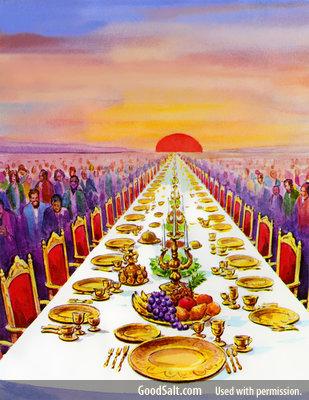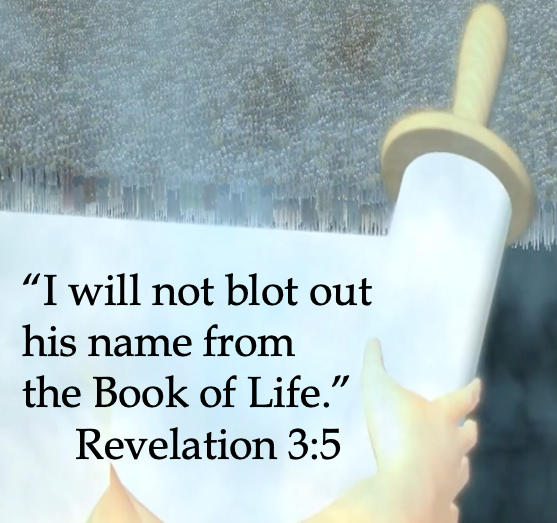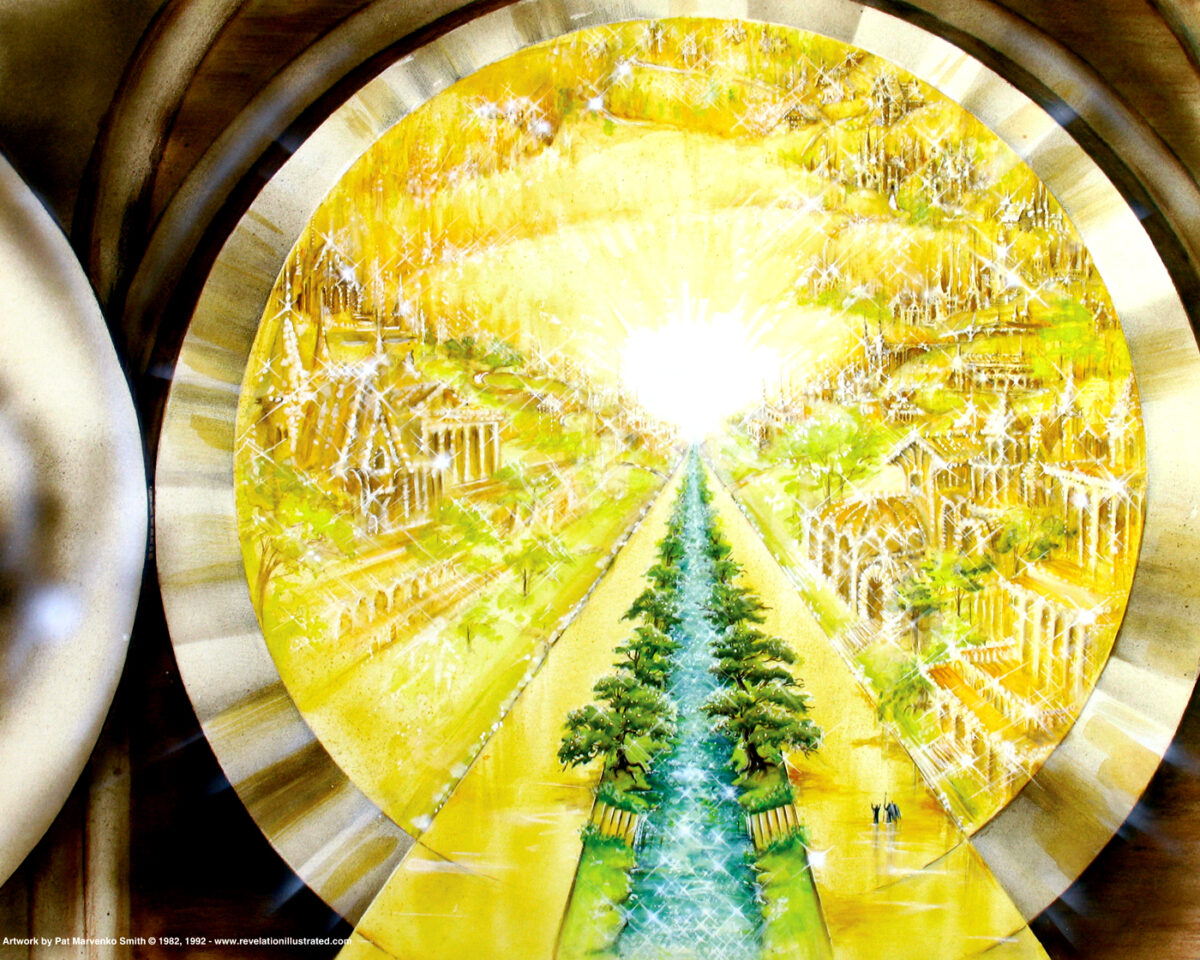“But the anointing which you have received from Him abides in you, and you do not need that anyone teach you; but as the same anointing teaches you concerning all things, and is true, and is not a lie, and just as it has taught you, you will abide in Him.” I John 2:27
One of the primary reasons the apostle John is writing his first epistle is because he is concerned that the enemies of God may jeopardize his readers’ fellowship with the Lord. We have learned there are three enemies to our fellowship with God: personal sin (1:5—2:11), the world (2:15-17), and the Devil and his false teachers (2:18-23).
John wants his readers to know that false teachers or antichrists defected from the apostolic churches of Jerusalem and Judea and sought to spread deception among John’s Gentile readers (2:18-19). John reassures his readers that they are not defenseless against these antichrists because they had the anointing of the Holy Spirit which enables them to understand and apply the truth of God’s Word and detect deception (2:20-21).
The primary deception of these false teachers denied that Jesus was the Christ Who guarantees a future resurrection and never-ending life to all who believe in Him (2:22a; cf. John 11:25-27). Denying that Jesus is the Christ is also a denial of “the Father and the Son” (2:22b) because to deny One is to deny the other and to acknowledge One is to acknowledge the other since Jesus is God and perfectly reflects God the Father (2:23; cf. John 5:24; 10:30, 38; 12:44-45; 14:9-11; et al.).
John then explains how his readers could continue to enjoy fellowship with God and experience victory over these false teachers: “Therefore let that abide in you which you heard from the beginning. If what you heard from the beginning abides in you, you also will abide in the Son and in the Father.” (I John 2:24). John once again utilizes his favorite word for fellowship or intimacy with God – “abide” (menō). This Greek word means to “to remain, stay, dwell, continue” 1 in fellowship. John uses this word twenty-four times in I John (2:6, 10, 14, 17, 19, 24 [3], 27 [2], 28; 3:6, 9, 14, 15, 17 24 [2]; 4:12, 13, 15, 16 [3].
If John’s readers were going to continue to enjoy fellowship or closeness with God “the Son” and God “the Father,” they must “abide” or remain in the truth they “heard from the beginning” of their Christian experience about God’s Son (2:24). False teaching leads believers away from fellowship with God and other Christians. This is why John tells them to abide in the truth about Jesus. Truth is what gives us new life in Christ. And truth is what enables us to enjoy this new life of fellowship with God. 2
What had John’s readers heard about God’s Son from the beginning of their Christian experience? “1 That which was from the beginning, which we have heard, which we have seen with our eyes, which we have looked upon, and our hands have handled, concerning the Word of life— 2 the life was manifested, and we have seen, and bear witness, and declare to you that eternal life which was with the Father and was manifested to us.” (I John 1:1-2). While John makes it clear that Jesus Christ is “the true God and eternal life” (5:20), he wants to emphasize the realities of eternal life itself 3 as it relates to “the beginning” of the gospel proclamation by Christ which John and the other disciples (“we”) witnessed (1:1-2; cf. 5:11-13; John 1:14). The phrase “Word of life” refers to the message about the life Jesus offers. This “life” is what John and the other apostles witnessed in Jesus. 4
When John writes, “If what you heard from the beginning abides in you…” (2:24b), the “if” in the Greek language means they might do what he asks of them, and they might not. 5 They might abide in the truth they heard about Jesus from the beginning of their Christian lives, and they might not. John says if they do abide in the truth about Jesus that gave them new life, namely, they believed in Jesus as the Christ to be born of God and possess eternal life (5:1, 13) – they will continue to enjoy fellowship with Him and the Father.
“John’s point here is that the Holy Spirit’s ministry always remains available to teach Christians, but the truth (‘what you have heard from the beginning’) must remain in us. Think of it like satellite TV. The satellite communicates, but your satellite dish must receive the signal. The power of the Holy Spirit is available to every believer, but many believers do not operate in a position of dependence on the Spirit because their satellite dishes only function on Sunday mornings.” 6
John’s readers were being told by the antichrists that Jesus was not the Christ Who guarantees a future resurrection and never-ending life to all who believe in Him. But John refutes this by saying, “And this is the promise that He has promised us—eternal life.” (I John 2:25). Instead of listening to the falsehoods of the antichrists, John redirects his readers to the unchanging “promise” of God which guarantees “eternal life” to all who believe in Jesus (cf. 5:1, 13; John 3:15-16, 36; 5:24; 6:35-40, 47; 11:25-27; 20:31). This is the message they heard from the beginning of their Christian experience. This is how they began a personal relationship with God. Assurance of eternal life is found in God’s promises, not in the lies of false teachers which denied that eternal life is through simple faith in Jesus.
There is much confusion today about assurance of salvation. Some insist that assurance of going to heaven is based on our performance and whether we measure up to certain tests concerning the quality of our Christian experience. 7 But if we look to our performance or experience, we will never be certain we have eternal life because we always fall short of God’s glory (Rom. 3:23; I John 1:8, 10). Whenever we take our focus off Christ and His finished work on the cross (John 19:30), we are more likely to doubt our salvation. Even on our best day, we still fall short of God’s glory.
John wants his readers to look to the unchanging promises of God for the assurance of their salvation. “God’s promises don’t change. That’s why the promises of God are the foundation for our assurance of salvation. People who want to teach that 1 John is a book of tests to determine whether you are a Christian or not have gone completely against what John himself uses as his source of assurance: the promises of God.” 8
Why does John remind his readers of their secure relationship with Jesus? “These things I have written to you concerning those who try to deceive you.” (I John 2:26). John did not want his readers to be deceived by the false teachers who tried to undermine their assurance of salvation. Knowing they have eternal life simply be believing in Jesus for it would enable them to effectively resist these antichrists who taught John’s readers they were not genuinely saved because they lacked a secret knowledge which only the false teachers could give them to have eternal life. John understood if a Christian doubts his or her salvation they are more vulnerable to losing their fellowship with God and the apostles.
John reminds his readers they were not dependent upon the antichrists or any human teachers. “But the anointing which you have received from Him abides in you, and you do not need that anyone teach you; but as the same anointing teaches you concerning all things, and is true, and is not a lie, and just as it has taught you, you will abide in Him.” (I John 2:27). Since John’s readers had “the anointing” of the Holy Spirit to teach them to correctly understand and apply God’s truth as long as they “will abide in Him,” they did not need the teaching of the antichrists or any human teacher. The anointing of the Holy Spirit or “Spirit of truth” (John 16:13) teaches them what “is true and is not a lie.” The Spirit’s teaching is always consistent with what “it has taught” previously. God’s Word will not contradict itself.
This suggests that John’s readers were spiritually mature since only the immature need human teachers. The writer of Hebrews states, “12 For though by this time you ought to be teachers, you need someone to teach you again the first principles of the oracles of God; and you have come to need milk and not solid food. 13 For everyone who partakes only of milk is unskilled in the word of righteousness, for he is a babe. 14 But solid food belongs to those who are of full age, that is, those who by reason of use have their senses exercised to discern both good and evil.” (Heb. 5:12-14). John’s readers not only had a knowledge of God’s Word, but they also had the skill to put it into practice. This enabled them “to discern both good” or truthfulteaching from “evil” or false teaching.
Am I suggesting it is possible for Christians not to have a need to be taught by other Christians? Yes and no. Keep in mind that we can always benefit from the teaching of others, but must we be dependent upon their teaching for our own spiritual maturity? First John 2:27 is just as true today as it was when John wrote it. All Christians at the beginning of their Christian life need human teachers to teach them the truths of God’s Word to help them become more like Christ. This is known as discipleship (Matt 10:24-25; 28:19-20; John 8:31-32). But as new believers learn to depend upon the Holy Spirit to teach them the Word and obey it, they can eventually learn to discern truth from deception without the assistance of human teachers.
God has given spiritual gifts to equip believers for the work of the ministry (Ephes. 4:11-12). Hence, someone with a gift of teaching will equip believers without this gift how to teach themselves. Spiritual gifts are meant to help others in areas where they are weak until they can to it independently of the gifted person.
According to I John 2:27, the ongoing teaching ministry of the Holy Spirit is always consistent with what the Holy Spirit has already taught. For example…
- If the Spirit has taught that Jesus Christ is fully God and fully Man (and He has – Isaiah 9:6-7; 44:6; Matt. 8:24; 9:11; Mark 6:3; John 1:1, 14-18, 34, 49; 2:12; 4:6; 5:16-47; 6:69; 7:3, 5; 8:57-59; 10:30-33; 11:27, 35; 12:27; 14:7-9; 19:28; 20:28, 31; 21:12; Acts 16:31, 34; 20:28; Romans 1:3-4; 9:5; Phil. 2:6-8; I Tim. 2:5; 3:16; 4:10; Titus 2:13; Heb. 1:8; I John 5:20; Rev. 1:17; 22:13), then He would not say centuries later that Jesus was not God nor human.
- If the Spirit has taught that believing in Christ for eternal life apart from any works is all that is necessary to go to heaven (and He has – John 3:15-16; 5:24; 6:40, 47; 11:25-26; 14:1-3; 20:31; Acts 16:31; Rom. 4:5; Gal. 2:16; Ephes. 1:13-14; 2:8-9; I Tim. 1:16; I John 5:1, 13), then He would not teach that one must do more than believe in Him such as turn from sins, be baptized with water, live a good life, keep the Ten Commandments, and confess Jesus is Lord.
- If the Spirit has taught that the only way to God is through faith in Jesus Christ (and He has – John 3:15-16, 36; 6:40, 47; 14:1-6; Acts 4:10-12; 16:31; I Tim. 2:3-5), then He would not say centuries later that all religions lead to God.
- If the Spirit has taught that the Bible is the inspired Word of God without any errors in its original manuscripts (and He has – 2 Tim. 3:16-17; 2 Pet. 1:20-21), then He would not teach centuries later that the Bible is full of errors.
The gospel promises of God never change. Jesus is the Christ, the promised Messiah-God, the Son of God, Who came from God the Father (John 1:18; 3:16). Jesus guarantees a future resurrection and never-ending life to all who believe in Him (John 11:25-27; I John 5:1, 13). The Antichrist and his false teachers deny that Jesus is God or the Son of God. They also deny that eternal life is through simple faith in Christ alone.
Islam denies that Jesus is the Son of God Who came from the Father. They also deny that eternal life is through simple belief in Jesus Christ. For the average Muslim, if he does more good than bad, he can hope for Allah’s merciful judgment to permit him to enter Paradise. For the outstanding Muslim, if he dies in battle against the infidels, he gains an instant entrance into Paradise. 9
The apostle Paul wrote, “But even if we, or an angel from heaven, preach any other gospel to you than what we have preached to you, let him be accursed.” (Gal 1:8). Paul warned his readers that if he and the other apostles (“we”) or “an angel from heaven” preached a different gospel than what Paul preached to them, he is to be “accursed” or under God’s displeasure. Paul used the words “believe” and “faith” fifteen times when referring to justification before God (2:16; 3:2, 5, 6, 7, 8, 9, 14, 22, 24, 26) in the book of Galatians. He used no other words as a condition for justification. He warned the Galatians not to support or join those who do not preach a “believe / faith alone” gospel (1:6- 9; 4:12, 21-30; 5:1-12; 6:17). It does not matter how kind or helpful a person is who teaches a different gospel. They are “accursed” by God if they preach a different way to heaven other than faith alone in Christ alone. This is very strong language!
With this said, the New Testament advises Christians to “correct” or “avoid” those who teach doctrine contrary to Jesus and the apostles (Matt. 15:10-14; 16:5-12; Rom. 16:17; Gal. 1:8-9; I Tim. 6:3-5, 20-21; 2 Tim. 2:23-26; Titus 1:9; 3:9-11), but we are in no way commanded to resort to violence against those who embrace other faiths. Unfortunately, Christians have not always followed God’s instructions for dealing with false teachers.
Anderson writes, “During the days of the Reformation, all the parties in western Christianity were guilty of the destruction of people for false teaching. The Pope, Martin Luther, Melancthon, and Calvin—all of them sanctioned torture and killing of false teachers. The Anabaptists were killed by other Protestants because they did not believe in infant baptism. Zwingli was viewed by Luther as a heathen because he believed the elements in the Lord’s Supper were symbolic. Thousands and thousands were burned at the stake or beheaded. Though Luther and Calvin believed Christ fulfilled the Law and the New Covenant superseded the Old Covenant, they retreated to Old Covenant laws to rid themselves of anyone who did not believe as they did.” 10
Nowhere in the New Testament are we instructed to murder or kill false teachers inside or outside the church. We are to correct them or shun them if they do not repent and embrace the truths of the Bible.
According to the apostle John, false teaching about God the Father and God the Son is one of the greatest enemies to fellowship with God (2:18-27). Thankfully, the anointing of the Holy Spirit gives Christians the ability to correctly understand and apply biblical truth and detect deception. The primary lies of false teachers deny the equality of God the Father and God the Son, and the free gift of eternal life through belief in Christ alone. All Christians throughout church history need to abide in the anointing of the Holy Spirit to protect them from those who seek to distract and derail them from pursuing Jesus Christ.
Prayer: Heavenly Father, thank You so much for the anointing of the Holy Spirit which enables every Christian to correctly understand Your truth and apply it to our lives. This same anointing also empowers us to detect deception, especially as it relates to God the Father and God the Son, and the free offer of eternal life to all who believe in Jesus. Help us continue to abide in the internal ministry of the Holy Spirit so we may remain faithful to Your Word which You have entrusted to us. In the mighty name of the Lord Jesus Christ, we pray. Amen.
ENDNOTES:
1. Walter Bauer, A Greek-English Lexicon of the New Testament and Other Early Christian Literature: Third Edition (BDAG) revised and edited by Frederick William Danker (Chicago: University of Chicago Press, 2000 Kindle Edition), pp. 630-631.
2. David R. Anderson, Maximum Joy: I John – Relationship or Fellowship? (Grace Theology Press, 2013 Kindle Edition), pg. 126.
3. Zane C. Hodges, Robert Wilkin; J. Bond; Gary Derickson; Brad Doskocil; Dwight Hunt; Shawn Leach; The Grace New Testament Commentary: Revised Edition (Grace Evangelical Society, Kindle Edition, 2019), pg. 588.
4. Ibid. pg. 589.
5. The Greek phrase Ean en hymin meinē is a third-class condition and conveys probability, not certainty, about the future. See Anderson, pg. 126.
6. Tony Evans, CSB Bibles by Holman, The Tony Evans Bible Commentary (B & H Publishing Group, Kindle Edition, 2019), pg. 2941.
7. Anderson, pg. 15 cites cites John MacArthur, Jr., Saved without a Doubt (Colorado Springs: Cook Communications, 1992), pp. 67-91; Constable, pg. 46 cites James Montgomery Boice, The Epistles of John (Grand Rapids: Zondervan Publishing House, 1979); Raymond Brown, The Epistles of John, Anchor Bible series(Garden City, N.Y.: Doubleday, 1982); F.F. Bruce, The Epistles of John (London: Pickering & Inglis Ltd., 1970; reprint ed., Grand Rapids: Wm. B. Eerdmans Publishing Co., 1986); John Calvin, The First Epistle of John, Calvin’s New Testament Commentaries series, Translated by T. H. L. Parker. Reprint ed. (Grand Rapids: Wm. B. Eerdmans Publishing Co., 1959-61); John F. MacArthur Jr., The Gospel according to Jesus (Grand Rapids: Zondervan Publishing House, 1988); John R. W. Stott, Basic Introduction to the New Testament, 1st American ed. (Grand Rapids: Wm. B. Eerdmans Publishing Co., 1964); Brooke Foss Westcott, The Epistles of St. John (1883. Reprint ed. England: Marcham Manor Press, 1966); and Warren W. Wiersbe, The Bible Exposition Commentary, 2 vols. (Wheaton: Scripture Press Publications, Victor Books, 1989).
8. Anderson, pg. 128.
9. Ibid., pp. 126-127; cf. Nabeel Qureshi, No God but One: Allah or Jesus? (Grand Rapids: Zondervan, 2016 Kindle Edition), pp. 30-34; Daniel Janosik, THE GUIDE TO ANSWERING ISLAM: What Every Christian Needs to Know About Islam and the Rise of Radical Islam (Christian Publishing House, 2019 Kindle Edition), pp. 142, 148, 153-154, pp. 163-164. 10. Anderson, pg. 127.







